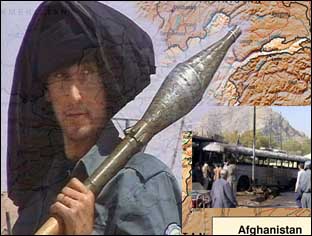It’s Time for the
Left to Get Serious
By Bill Fletcher Jr.
Democratic Left – Winter 2009
http://dsausa.org/dl/Winter_2010.pdf
Shortly after last November’s presidential election, I spoke at a forum discussing its implications. There I mentioned that we should anticipate a right-wing populist trend emerging, one that I would describe as “revanchist” – a term meaning “revenge-seeking.” Interestingly enough, a member of the International Socialist Organization dismissed my concerns as pessimistic and unwarranted. She emphasized the energy and dynamism coming out of the campaign. While, of course, I could see the same thing, I suggested to her that she was underestimating the toxic filth that exists in the bilges of the U.S. Unfortunately, we can see what has been unfolding over the last year.
Right-wing populism has a long history in the U.S. and, much like various chronic illnesses, becomes a part of the system and seems to emerge when the body is weakened. In our case, the body is the economy. When the economy is in crisis, and particularly when there is a financial crisis, right-wing populism emerges and can become a potent political force. Right-wing populism is not well understood by the Left. Fascism, for instance, which is often our description of anything we do not like that comes out of the Right, is one variant of right-wing populism, but they are not identical. Right-wing populism is a political force that sometimes sounds like a Left critique, but is anything but such a critique. It is – and this is why it is so dangerous – a phenomenon that draws from the myth of U.S. history, so elements of it are easily picked up by segments of the population that are susceptible to the draw of the dominant U.S. narrative.
Let me lay out the basic right-wing populist narrative: We once lived in a society of rugged individuals. If you – generally speaking, a white person – worked hard, you would succeed. If you put in a good day’s work, you would be rewarded. But, you see, we – white people – were betrayed. “Our” lives are falling apart. It was one thing for blacks to fall deeper into poverty, or Latinos to be on the margins, but it was not supposed to happen to us. And so, we must find out and identify who betrayed us. Jews are one group; racial minorities are another… And so the story goes…
The virulent racism inherent in right-wing populism is evident today in the anti-Obama madness that has been unfolding. Now there is much to be critical of when it comes to the Obama administration, but the nature of the right-wing assault speaks to the irrationalism of right-wing populism. Whether it is the so-called Birthers, or the healthcare debate, we see it again and again. No concern regarding the truth or facts, but instead playing to fears.
The election of Obama completely unsettled large segments of white America. While their lives were collapsing, how was it possible that a black American would be elected president of the USA? It was not supposed to happen that way.
Right-wing populism plays on fears but it also plays on real concerns. Obama’s main focus has been on securing capitalism. The bailouts of Wall Street, begun under Bush, continued. Yet with these bailouts there were precious few controls on the greed and avarice of Wall Street. The sickening efforts by Wall Street to continue its huge salaries and bonuses flaunted the bailouts and made many people, quite justifiably, furious. On top of that, of course, the wars continue, with resources that should be used to rebuild the U.S. (and save the planet) being devoted to aggression.
But there is something else that has been happening that particularly unsettles right-wing populists. While Obama is concerned about changing the image of the U.S. empire, he altered U.S. foreign policy in some ways that drives the political Right crazy. Take, for instance, his speech to the Muslim world and the apology he offered regarding the 1953 coup in Iran. The president openly acknowledged the U.S. role in that coup, i.e., in the overthrow of a democratic, sovereign government. The problem, however, is that Obama broke the cardinal rule: the U.S. does not apologize for anything, irrespective of whether it is wrong. One of the challenges that we on the Left face is how to respond to right-wing populism while at the same time taking on Obama. Too many progressives believe that we either have to denounce Obama or we have to embrace Obama. The lack of any sort of tactical nuance is pathetic.
Let us be clear about our situation. We live at a moment of the convergence of three crises: economic, environmental and state legitimacy. While we are increasingly clear about the dangers brought about by the economic and environmental crises, few of us, including on the Left, pay attention to the crisis of state legitimacy. The impact of neoliberal globalization has, among other things, reshaped the role of the state. In general, the capitalist state cannot operate strictly on repression;therefore there must be some level of consensus. That consensus, at least among significant portions of the population, rests on the notion that the state will distribute resources and will help to sustain the population, particularly during rough periods. But what happens when the state stops fulfilling its distributionist role? What happens when people come to believe that they cannot count on the state? Neoliberal globalization has led to a shifting of the role of the State in that it is now more highly repressive but also much less distributionist. Given the polarization of wealth and overall inequality, there are fewer resources that can be devoted to distributionist activities, but always plenty of resources to devote toward wars, prisons and police. In that situation, people start looking out for themselves and this is when things can become dangerous. While the Left’s response to such a situation is to, among other things, demand a progressive role for the state and, for socialists, to look for a transformation beyond the capitalist state, the political Right can either move in the direction of greater authoritarianism or toward militiatype movements. An extreme version of this can be openly genocidal, e.g., Rwanda, 1994: people murdering one another over increasingly scarce resources.
Obama emerged in the midst of these crises bringing hope and inspiration, and, while I sincerely believe that he had the intention of introducing certain significant changes, the objectives of his administration are focused on reforming neoliberal capitalism and, as such, are not qualitatively different from either Bill or Hillary Clinton. Look, I was not anticipating an anti-capitalist president, but what is striking is that his administration does not even seek to introduce a different form of capitalist accumulation in light of the crisis of neoliberal globalization – at least not yet. And that, I would argue, will depend to a great degree on what the Left and progressive social movements are prepared to do.
Obama’s efforts to preserve neoliberal capitalism actually fuel the fires of rightwing populism. Of course right-wing populism is not anti-capitalist, but in opportunistic fashion, plays on the fears and grievances that people face as a result of the reality of neoliberal capitalism. Insofar as Obama places attention on protecting capital, right-wing populism plays upon this because there is very little left-wing challenge that speaks to the grievances felt by so many.
Prior to the Obama election I feared that progressives and leftists would do, essentially, what many subsequently have done: either write off the election results or fall into demobilization. I will leave aside those who simply write off the administration. They are of little consequence. What is more dangerous are those who have decided to restrain their critiques of the administration; those who have decided that it is better to follow an inside track of playing up to the administration, hoping that by muting their criticisms and differences that they will at least have a seat at the table. In fact, there is a national labor leader who said just that, i.e., that it was better to be at the table and get nothing than to be standing on the outside.
For the Left, in the midst of the convergence of these three crises I would suggest the following:
• Offer a different explanation of U.S. history and of what
is happening right now.
• Respond to the crises with theory and action. We cannot destroy myths with facts alone but must instead link those facts to a counter-analysis or framework.
• Build real organizations that are prepared to fight back. This is what makes the ACORN disaster so troubling. We need organizations like ACORN that are rooted among the poor and are prepared to resist. The recent demonstrations in Chicago that involved SEIU and National People’s Action are a good example of the sorts of activities that we need, but we must go much further, ranging from eviction resistance to the need for a resurgence of the anti-war movement. What about unemployed councils?
• Force the Obama administration to do what needs to be done, both domestically and internationally. We cannot afford to sit back and soft-pedal our criticisms of Obama.
• Get serious about mounting progressive electoral challenges, which will not only take on Republicans but also conservative Democrats.
And then there are the tasks of socialists. I must say that I am sick of our failure to think through what needs to be done to rebuild a visible and viable radical Left. Yes, radical! Yes, one that is completely unapologetic in pointing out that capitalism is a criminal system driving this planet to the brink of disaster. The Left must be at the core of those who voice their outrage as to what is not only happening to the Palestinians, but also to people in Paterson, New Jersey. We must be the ones who continue to point out that every time we hear about this damned deficit, people should remember what could be saved were we not in Iraq and Afghanistan. We must be the ones who point out that this administration was absolutely wrong in its approach to the Honduran coup; i.e., that the U.S. should have done everything in its power to force the coup people from power. We must be the ones who speak to the misery in Camden, New Jersey; Flint, Michigan; and Oakland, California.
But we cannot do that without organization. We cannot do that by relying on Facebook, Web sites and e-mails. We cannot do that by relying on speaking to and with those people that we like and who agree with us. It means organization and it means that we have to operate very differently than most of us are comfortable operating. Yes, comrades of DSA, while your younger members are going great guns, a fact about which you should be very proud, we need a different DSA. We need tighter organization that educates and activates. We need DSA to reach out to others on the Left, particularly the radical Left, and engage in both joint work but also discussions regarding what steps need to be taken to create a significant formation on the political Left.
We ultimately need a party of the Left, a formation that while not focused on running candidates for office in the near future, becomes a vehicle to unite activists from various progressive social movements; a party that is overtly anti-capitalist; a party that tells the people of the U.S. a different story, a story about possibilities, but also a story about our real history as a country; a party that pushes for the U.S. to rejoin the people of planet Earth, repairing the damage that the U.S. helped to bring about, as we struggle and fight to save what Jacques Cousteau always called the “Water Planet.”
In this sense, comrades, I am here to not only speak to you about the subject of this panel, but to put before you a challenge. Too many of us on the Left act as if we have all the time in the world to make changes. If it does not happen in our lifetimes, too many of us think, it will inevitably happen in the next. No! History demonstrates exactly the opposite. There are no guarantees. Right-wing populism, whether in the form of the Birthers, Aryan Nation-types, Minutemen, the Front National in France, the Northern Leagues in Italy or in the form of clerical fascists such as Al Qaeda – yes, Al Qaeda – seek to take us into a mythical world that never existed; a world of fear, of horror, of hopelessness, of endless repression.
DSA is needed as a major force to transform the Left and compel the entire Left to recognize that ours must be a struggle for power; a struggle for a progressive politics; a struggle to create a national-popular bloc capable of truly altering the priorities of this country…and this necessitates theory and it necessitates organization. Remember the words of A. Philip Randolph that I think are so applicable to this moment:
“At the banquet table of nature there are no reserved seats. You get what you can take, and you keep what you can hold. If you can’t take anything, you won’t get anything; and if you can’t hold anything, you won’t keep anything. And you can’t take anything without organization.”
What more needs to be said?
[Bill Fletcher, Jr. is the executive editor of BlackCommentator.com and a senior scholar with the ‘Institute for Policy Studies’. The immediate past president of ‘TransAfrica Forum’, he is co-author of ‘Solidarity Divided’, which analyzes the crisis in organized labor in the U.S. He can be reached at papaq54@hotmail.com. ]


 Main Street?
Main Street? 


 Cap & Dividend:
Cap & Dividend: 
 Washington's Wars
Washington's Wars 




![[PDA - Heathcare NOT Warfare - Sign the Petition.]](http://pdamerica.org/images/ads/HealthNotWar_final.jpg)


